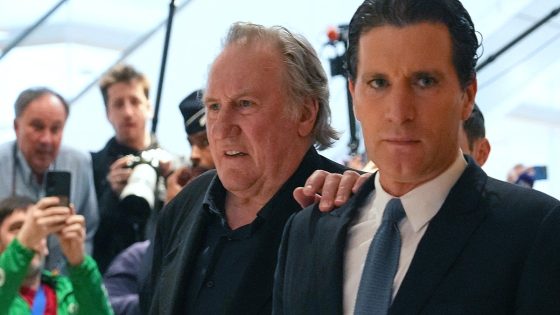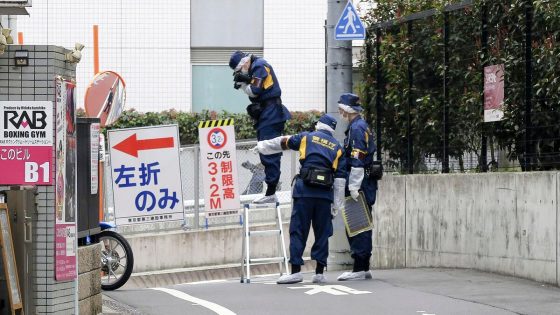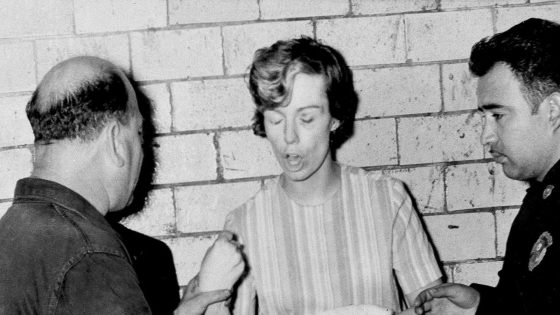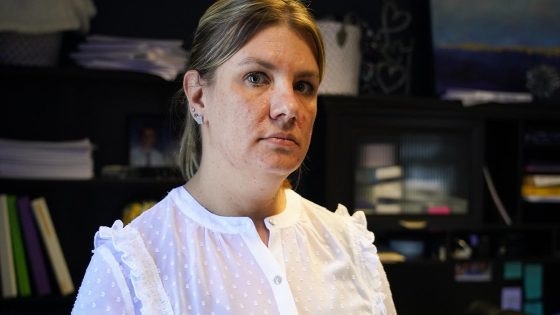In the heart of Paris, a legal drama unfolds this week that has drawn attention not only from the entertainment world but from society at large. Gérard Depardieu, the iconic figure of French cinema, finds himself in a courtroom facing allegations of sexual assault from two women who claim incidents occurred during the filming of “Les Volets Verts” in 2021. The set designer, aged 34, and the assistant producer, 54, allege that the 76-year-old actor groped them while they were working on the film during August and September of that year.
- Gérard Depardieu accused of sexual assault
- Allegations involve two women from 2021
- Trial postponed due to Depardieu's health
- Medical experts cleared him for trial attendance
- Depardieu faces potential five-year prison term
- Actor has history of sexual misconduct allegations
The courtroom was tense as the prosecution presented the charges, which include sexual assault, sexual harassment, and sexist insults. Notably, the women did not come forward with their allegations immediately; it was only after Depardieu publicly declared in an open letter in Le Figaro that he had “never abused a woman” in October 2023 that one of the accusers decided to take action. Authorities reported that this prompted the set designer to file a complaint with the police.
The trial originally began in October but was adjourned, primarily due to concerns over Depardieu’s health, as the actor is a diabetic and had recently undergone major heart surgery. His lawyer, in defense of his client, informed the court that the actor’s health would dictate the pace of the hearings. Medical experts later evaluated him and deemed him fit to stand trial, albeit with certain limitations—court sessions would last only six hours a day, with breaks as needed for his health.
As the trial unfolded, both the public and the media reflected on a career that has long held both respect and controversy. While he is lauded for his cinematic contributions, Depardieu has faced numerous allegations of sexual misconduct over the years, with claims from over a dozen women. However, many of these instances, surfacing long after the events, are barred by French law from prosecution. The legal intricacies make this case particularly compelling, prompting discussions on the accountability of public figures and the timing of such accusations.
In a twist to his already complex narrative, Depardieu notably relocated to Belgium roughly a decade ago, expressing discontent over rising taxes in France. This move not only marked a shift in his living arrangements but also reflected a turbulent period in his life, further complicated by his open admiration for Russia and its leadership under Vladimir Putin.
Against this backdrop, the public’s perception of the actor continues to be a paradox, caught between his cinematic legacy and the rising wave of accountability in matters of sexual misconduct within the entertainment industry. If convicted, Depardieu faces a potential five-year prison sentence and fines that could reach about $80,000.
As the trial progresses, many are watching closely for the outcomes of these serious charges. The verdict holds significant implications—not just for Depardieu, but for the cultural landscape in France as it grapples with issues of power, vulnerability, and the rights of victims. Deferred and delayed, the case symbolizes a critical turning point in how society addresses such allegations, leaving many to wonder what the next chapters in this unfolding story will reveal.
































